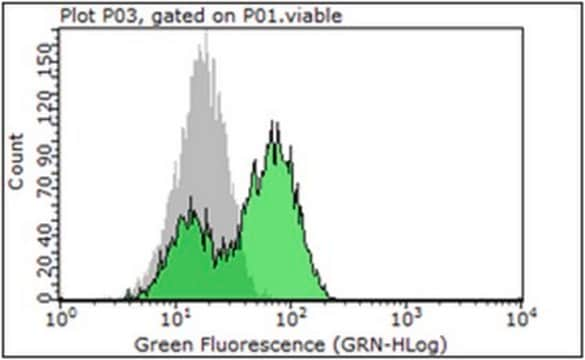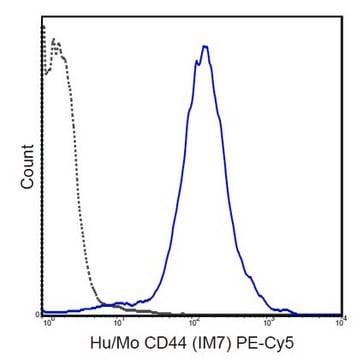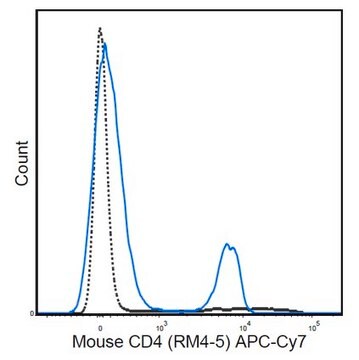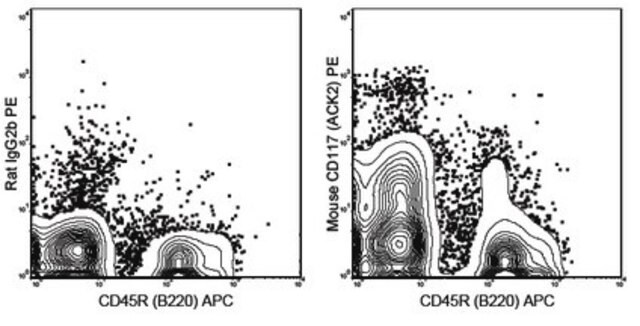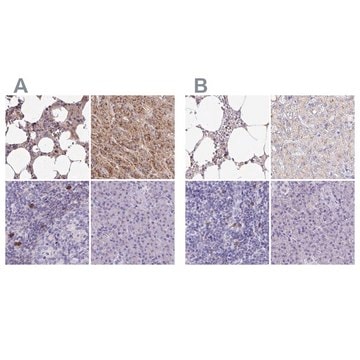MABF580
Anti-CD44 Antibody (human/mouse), APC, clone IM7
clone IM7, 0.2 mg/mL, from rat
Sinonimo/i:
CD44 antigen, Extracellular matrix receptor III, ECMR-III, GP90 lymphocyte homing/adhesion receptor, HUTCH-I, Hermes antigen, Hyaluronate receptor, Lymphocyte antigen 24, Ly-24, Phagocytic glycoprotein 1, PGP-1, Phagocytic glycoprotein I, PGP-I, CD44
About This Item
Prodotti consigliati
Origine biologica
rat
Livello qualitativo
Coniugato
Allophycocyanin conjugate
Forma dell’anticorpo
purified antibody
Tipo di anticorpo
primary antibodies
Clone
IM7, monoclonal
Reattività contro le specie
mouse, human
Confezionamento
antibody small pack of 25 μg
Concentrazione
0.2 mg/mL
tecniche
flow cytometry: suitable
immunohistochemistry: suitable
immunoprecipitation (IP): suitable
western blot: suitable
Isotipo
IgG2bκ
N° accesso UniProt
Condizioni di spedizione
wet ice
modifica post-traduzionali bersaglio
unmodified
Informazioni sul gene
human ... CD44(960)
mouse ... Cd44(12505)
Descrizione generale
Immunogeno
Applicazioni
Inflammation & Immunology
Qualità
Flow Cytometry Analysis: 0.125 μg of this antibody detected CD44 in one million C57Bl/6 splenocytes.
Stato fisico
Stoccaggio e stabilità
Esclusione di responsabilità
Not finding the right product?
Try our Motore di ricerca dei prodotti.
Codice della classe di stoccaggio
12 - Non Combustible Liquids
Classe di pericolosità dell'acqua (WGK)
nwg
Punto d’infiammabilità (°F)
Not applicable
Punto d’infiammabilità (°C)
Not applicable
Certificati d'analisi (COA)
Cerca il Certificati d'analisi (COA) digitando il numero di lotto/batch corrispondente. I numeri di lotto o di batch sono stampati sull'etichetta dei prodotti dopo la parola ‘Lotto’ o ‘Batch’.
Possiedi già questo prodotto?
I documenti relativi ai prodotti acquistati recentemente sono disponibili nell’Archivio dei documenti.
Il team dei nostri ricercatori vanta grande esperienza in tutte le aree della ricerca quali Life Science, scienza dei materiali, sintesi chimica, cromatografia, discipline analitiche, ecc..
Contatta l'Assistenza Tecnica.